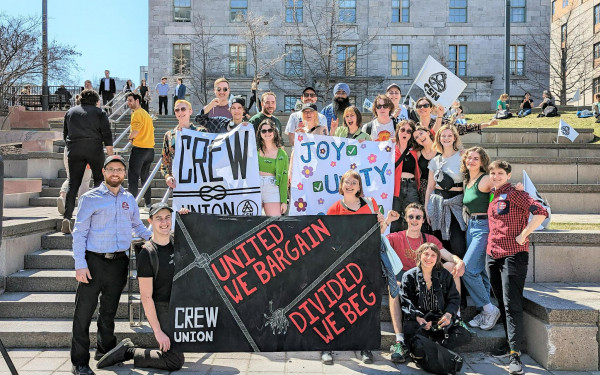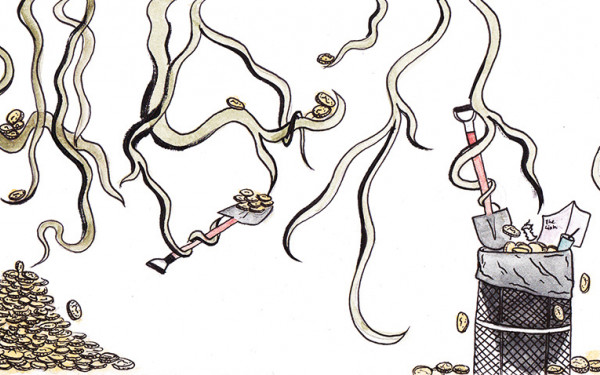TRAC Back on Track?
New Executive Team with Familiar Faces Hoping to Overcome Tumultuous Year
After a turbulent year marked by an internal investigation launched in September, the new executive team for Teaching and Research Assistants at Concordia has been elected.
But many of the names on the team are familiar.
Nader Jafari Nodoushan and Gounash Pirniya are back as president and grievance officer respectively, months after Nodoushan was called out in that report. It claimed Nodoushan had been interfering with the work of other officers and suggested barring him from the executive for a year—but it was voted down at all union levels.
TAs and RAs dismissed the investigation at a meeting at Concordia in January. It was voted down at the provincial and national levels as well. Daniel Leblanc from the Public Service Alliance of Canada said the parent union took the vote at Concordia into consideration.
“It was a good opportunity to talk about the things that happened and reflect in other ways,” said grievance officer Gounash Pirniya after the elections.
“I’m happy because people that are in the executive now have the feeling to work together and have more cooperation,” she added, confident that the new team will be efficient after a year of internal investigation and trusteeship.
Pirniya has always maintained that the methods of the investigation were improper and failed to respond to her and Nodoushan’s version of the events.
“Most of the facts [in the report] didn’t reflect the reality,” said TRAC president Nader Jafari Nodoushan about the report.
At the end of the investigation, TRAC executives were removed from their positions immediately. Since the beginning of the investigation in September, the union has been static and hasn’t made many gains in bargaining for a new collective agreement, according to previous executives.
Nodoushan says he wants to raise awareness about the union and get more people involved. He mentioned adding delegates from each faculty would increase the participation in the union. Right now the executive is made up of students exclusively in the faculty of engineering.
TRAC, as well as the GSA, has failed to properly gather many students for meetings all semester.
“More people should be coming to these things that we get a balanced representation,” said former bargaining officer Isabelle Johnston. “The people in the room get to decide. That’s the way it works.”

Johnston was named in the report, and lost her run to be bargaining officer again.
During the elections, she noticed small flyers were distributed to voters with the names of the candidates. The names on the cards ended up winning.
PSAC doesn’t have any campaigning rules, so passing around a voting guide is not illegal. During the election, there was also a problem with ballots. Some students received more than one sheet for some positions.
“I think it speaks to the motivation of the people in the room if they’re coming in with a list of the people they’re supposed to vote for, without having heard anyone,” she said.
Johnston feels the culture at the last few assemblies is that people don’t need to listen, because they have their minds made up.
“The election was more or less foretold,” said Pierce Nettling, who also ran for president of TRAC. Arts and Science graduates tend to be absent at assemblies, he said.
Robert Sonin, another former exec named in the report, was barred from entering the meeting because he is no longer considered a member of TRAC. Sonin has also been sent notices from PSAC for speaking to media while ordered not to.
While engineering students are supposedly more likely to attend TRAC meetings, teaching assistants in the faculty have traditionally felt prejudiced against because they follow a separate pay scale.
In response to questions about pay scales and differing rates for engineering TAs, Johnston, who was supposed to be responsible for bargaining during the year, said any discrepancies in pay are on their way out with the next collective agreement.
The new agreement is supposed to pay teaching assistants in all faculties the same rate, with different rates for bachelor’s, master’s and doctorate students. The last agreement increased the pay scale for TAs in online classes and, according to Johnston, TRAC is moving towards a single pay rate according to levels of studies.

_900_597_90.jpg)



_600_375_90_s_c1.jpg)
_600_375_90_s_c1.jpg)
